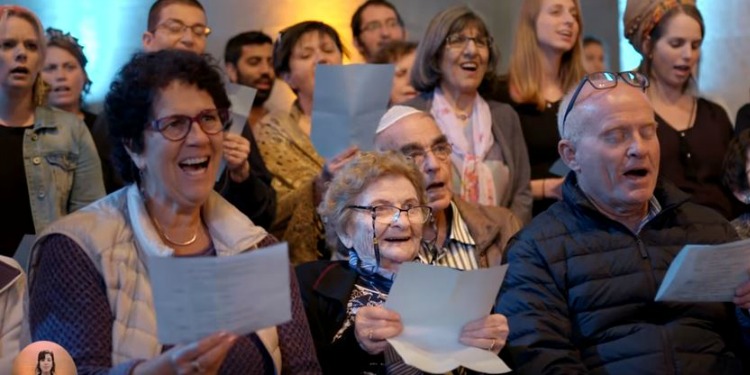Wake Up and Sing
The Fellowship | October 28, 2018

“‘Wake up, wake up, Deborah!
Wake up, wake up, break out in song!
Arise, Barak!
Take captive your captives, son of Abinoam.'” — Judges 5:12
At the very heart of Judaism is the Sabbath — the only ritual ordained in the Ten Commandments. In a world where there are so many distractions, it is imperative to learn about and cherish the one day a week set aside for rest and contemplation, a day Jews call Shabbat. This is one of 12 devotions exploring the many lessons we can learn from this rich observance. For more teaching on the Sabbath, download our complimentary Bible study.
The Sabbath on which we read this portion of Scripture from the book of Judges is known in the Jewish tradition as Shabbat Shira, the Sabbath of Song. This Sabbath gets its name from the fact not only do we read Deborah’s song from the book of Judges, but we also read the Song of the Sea from Exodus 15:1-18, Moses’ and Miriam’s song about God’s deliverance for the children of Israel.
It’s a Sabbath replete with singing songs of praises to God.
I’d like to focus on one verse in the Song of Deborah. It is a verse that seems out of place. Deborah was singing a song of praise to God just after a miraculous victory against the army commanded by Sisera, who had been oppressing the children of Israel. Yet, in the middle of her song, Deborah cried out, “‘Wake up, wake up, Deborah! Wake up, wake up, break out in song!”
Wait a second – wasn’t she already singing? According to Jewish tradition, Deborah had briefly lost her ability to prophesize and sing because a few verses earlier, in verse 7, she said, “. . . they held back until I, Deborah, arose, until I arose, a mother in Israel.” This statement wasn’t all that humble and so God’s spirit left Deborah. She corrected herself and God’s spirit returned.
However, taken from a different angle, this verse has a message for us all. It’s no wonder that it is borrowed and taken into our Friday night prayer service in a paragraph that reads, “Wake up! Wake up! For your light has come, rise up and shine; Awaken, awaken, utter a song, the glory of God is revealed upon you.”
This paragraph is a combination of our verse from Deborah’s song with Isaiah 60:1, which reads, “Arise, shine, for your light has come, and the glory of the LORD rises upon you.” Together, the message for us is to wake up and see the glory of God that is all around us.
Most people go through their lives like this: Wake up, dress, eat, go to work, work, come home, run errands, eat, watch television, and sleep. Repeat. And repeat and repeat and repeat. It’s so easy for life to become mechanical. It’s so easy to fall into a deep spiritual sleep. But on every Sabbath, and especially on this Sabbath, we are reminded to wake up and sing.
Wake up and see the glory of God all around us! Wake up and see the amazing world we live in, filled with miracles, both hidden and revealed. Wake up and see the many blessings and people we have in our lives for which to be thankful.
This week, I encourage us all to wake up and recognize the glory of God in our lives. Wake up to the blessings. Wake up to the miracles. When you do, you can’t help but break out in song and sing praises to the Lord!
